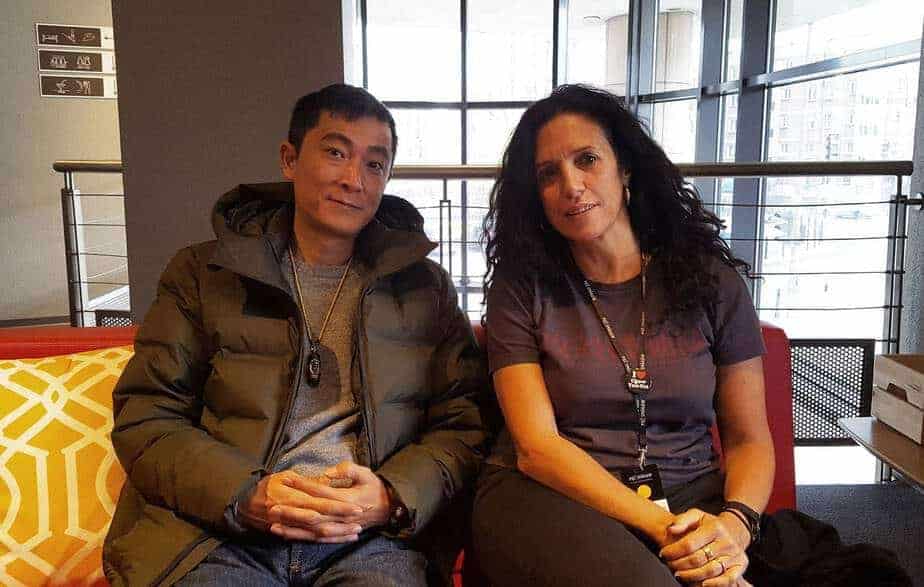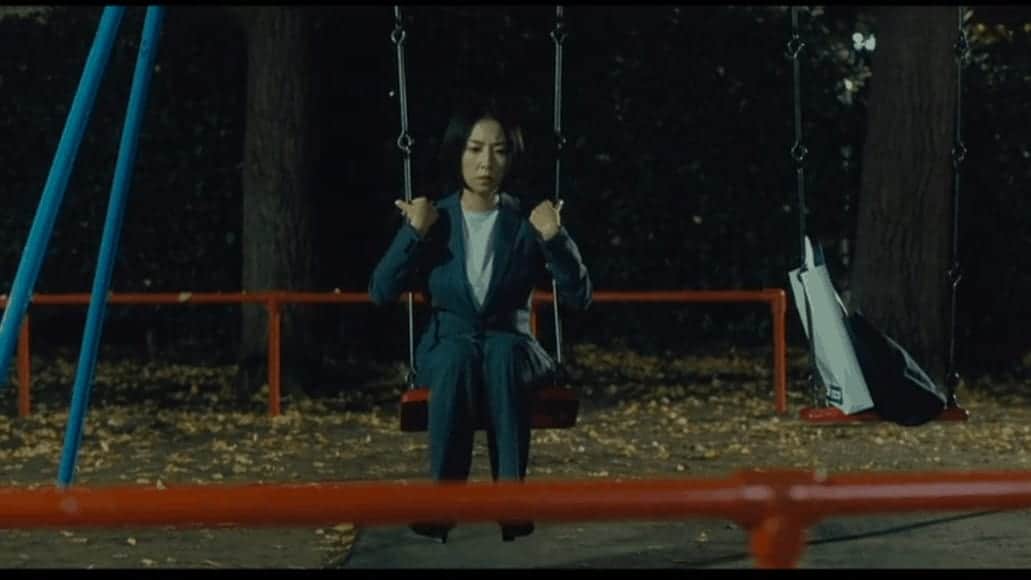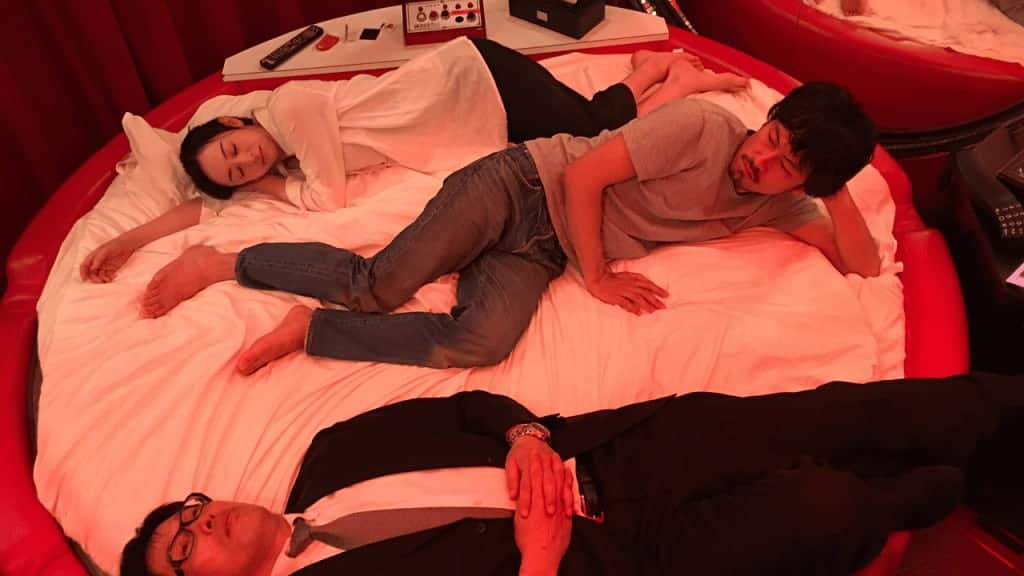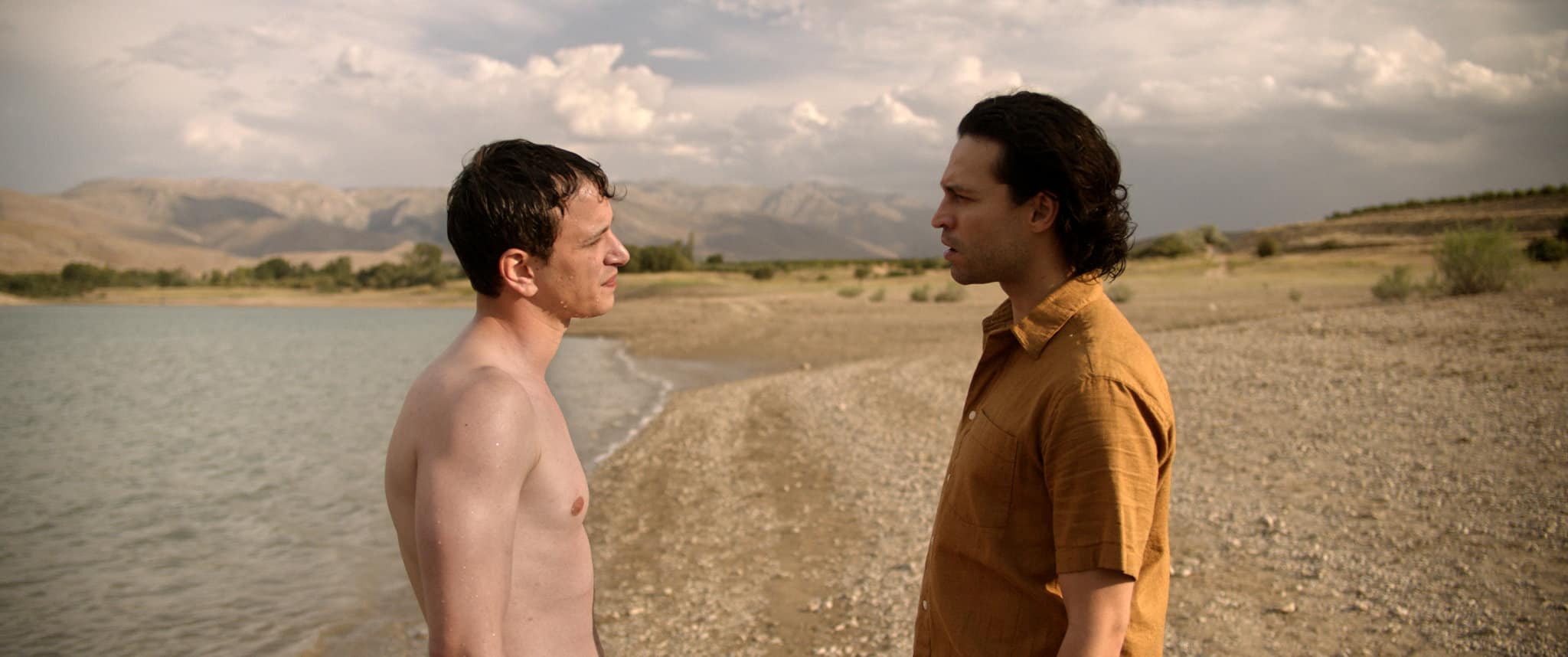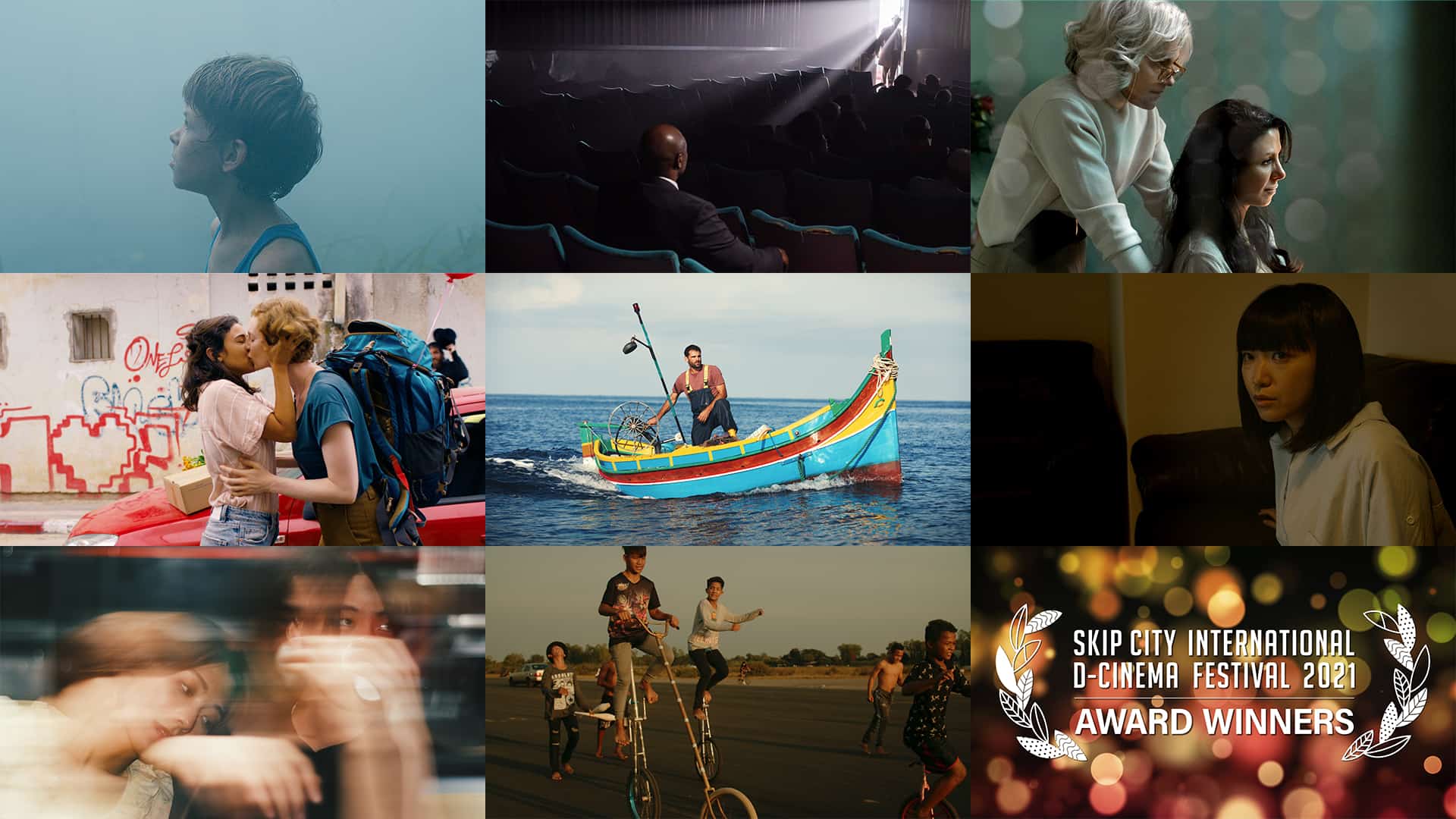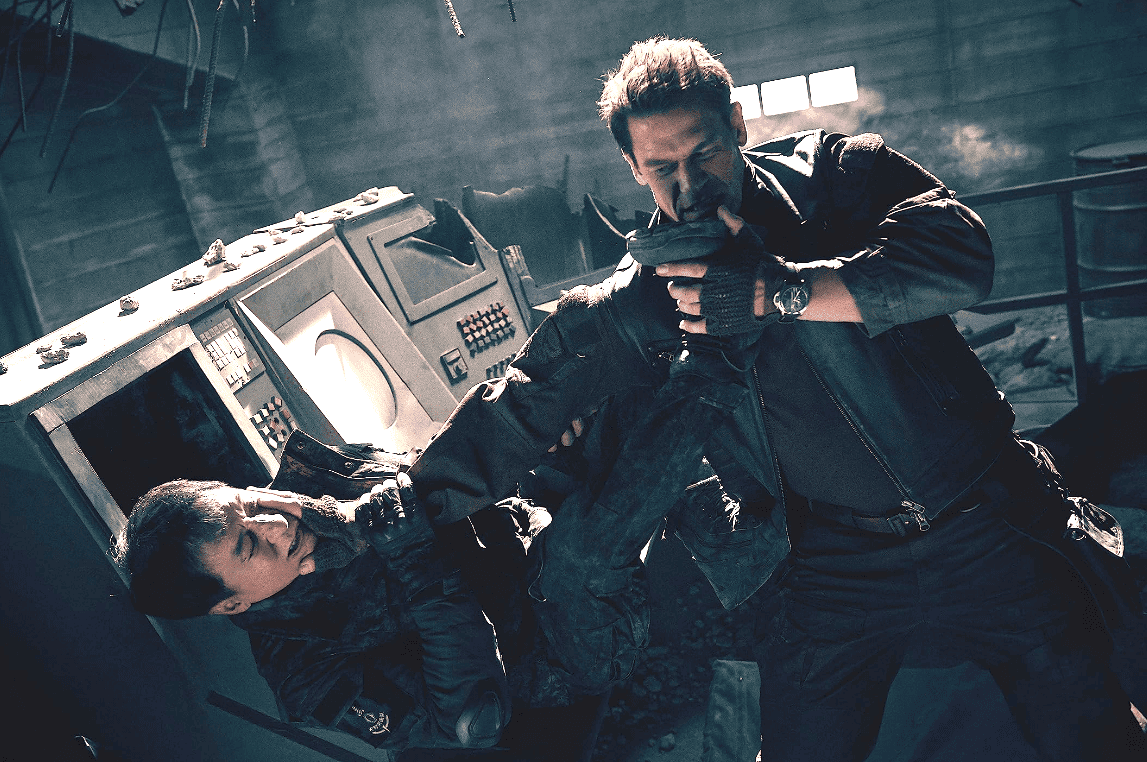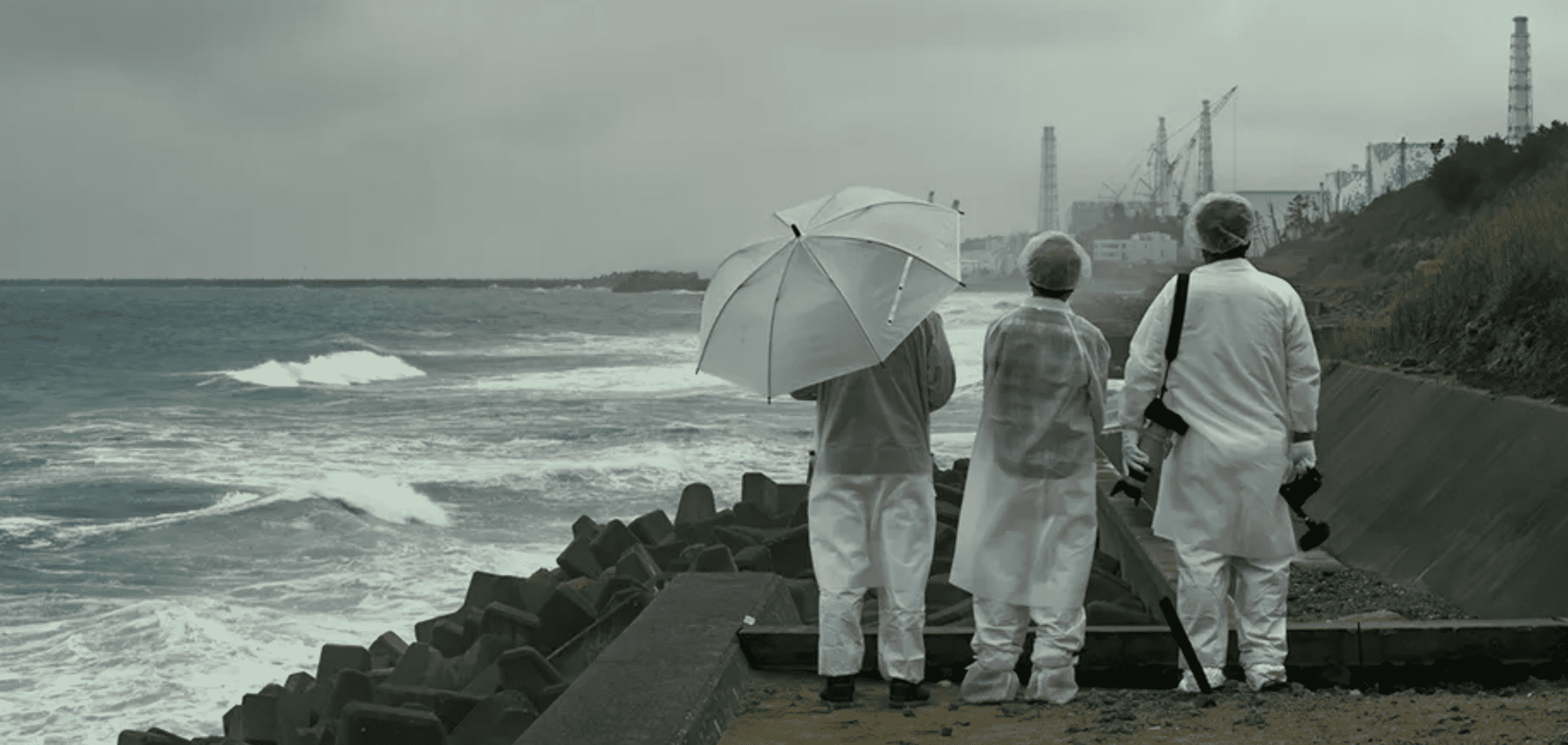Born in 1972, he has been directing since 1996. To make his feature debut, he worked at a construction site and drove a truck. He used the award he received for the film to make his subsequent projects. His two latest features premiered in Locarno. He is one of the most original independent Japanese filmmakers, and lives in turns in Japan and in Thailand. He is interested in migration and the search for individual identity.
On the occasion of his film, “Bangkok Nites” screening at Five Flavours, we speak with him about tuk-tuk drivers, folk songs, exploring Isan and Colonel Kurtz.

How did you adventure as a filmmaker start?
I wanted to be a musician when I was young, I was living in a small town and decided to go and try my luck in Tokyo, but the plan failed as living in Tokyo is too expensive and you also need a lot of money to get into the music business. So, I secluded myself in the house and I watched lots of movies. In my hometown, only Hollywood productions and big blockbusters were available to rent or buy, but in Tokyo I could find so many different movies from different countries.
And what were the most influential movies you watched at that time?
Fellini! Felllini's 8 1/2. And lots of very old black and white movies too. And then I thought I wanted to make a movie.
I've heard the funding was very hard and you had to start from scratch to make “Saudade”
Well, yes I had to do lots of odd jobs to make money as I didn't have any to start, even before “Saudade” I did two small indie movies in Super8 that I paid completely with my own money.
Did “Saudade” make it easy to step into “Bangkok Nites”?
Yes, it was definitely a gradual transition. Without “Saudade”, I couldn't have done “Bangkok Nites”
About “Bangkok Nites”, it is a long movie depicting a long journey, what about the process of the production? Was that long too?
The first idea came about 10 years ago, that was the very beginning when I thought: “Yes, I want to make this movie”, but then only five years ago I went to research the place, I got my backpack and started my journey and started to write the script.
The film has two very different and distinct settings, in Bangkok, as the title suggests, but also in the North-Eastern countryside. Was is it part of the plan?
In the research part, I was in Bangkok and I interviewed and chatted with lots of tuk-tuk drivers and taxi drivers at night, we became friends and talked a lot. And same with the girls, the night workers, and I discovered that about 90% of cab drivers are from the North-East of Thailand, an area that is very different, with a different dialect and so it was a weird feeling, being in Bangkok and talking with people from another place. Moreover, about 70% of the girls I talked to are from the same area. Isan is the name of the region. In the end, I decided to write a story about these people coming from Isan.
Talking about that part of Thailand, I spotted Apichatpong Weerasethakul within the credits. What was his contribution to your film?
Isan is the part of Thailand director Weerasethakul comes from and he shoots all his movies there and so the first idea was: “Well, I am going to Thailand to shoot in that spot, I have to go and speak with him, obviously!”. He helped us a lot with his knowledge of the region and that it's why he is in the credits.
How long did it take the actual shooting?
All in all, it took three months.
I have noticed that in “Bangkok Nites” there is a concept/word: Paradise. For Luck Paradise is having lots of money and opening a European restaurant. For Ozawa Paradise is the apparent simplicity of the countryside life. For the brothel's clients Paradise if sex and drugs at a fraction of Rappongi's prices. Can you tell me more about Paradise?
Yes, as you said the character have different identities and upbringing and they have different ideas of Paradise, and from the man and the woman there is even a bigger clash about this idea. There are three main issues in the film. One is the prostitution, then the economy and finally Paradise, and they are all linked. The vision of Paradise can depend on economic conditions, relations between countries, not only Asia but also European colonization or American, so it's not only a person's vision, but involves politics and economics.
The film has got a very eclectic soundtrack. Can you tell us how and where did you find the songs?
I was always listening to the music on the tuk-tuk and taxis when I was talking with the drivers for my research and I was also listening to songs on the radio a lot and after a bit I started to love them and discovered that many were from the Isan region. I didn't understand Thai at the beginning so I only appreciate the music, but then I started to understand the lyrics as well and 80% of the songs are either from the Isan region or about life and poverty there. Many songs talk about these girls that are forced to become prostitutes because of the economic conditions and often undergo violence and rape. These are the lyrics of the songs I have heard in Bangkok during my research within the community of drivers. Then of course, they are not only about poverty but also about the Nation and the sense of loss of their own country.
It's a real shame we don't understand the lyrics as they seem to be very pertinent to the movie's topics!
Yes, true. For example, there is a band playing in the movie and the song is called “I will buy you back” meaning he wants to pay money to free the girl from the situation of slavery she's in. So, this song, and even its title, is perfectly pertinent to the movie.
There are some very important things here, first of all, these songs from this group of people from Isan (also where Apichatpong Weerasethakul shot all his movies) and the migration from there to Bangkok, they are very important for my movie. I studied a lot about this specific region bordering with Laos.
I loved the visual of Bangkok Nites and my favorite and most powerful scene is when they are near the Laos border, and suddenly the camera goes up and we see the country completely devastated by huge round craters of bombs. Was it a drone shot?
Thank you! Yes, it was a drone. Laos is actually full of places like it, you see that one in that scene but there are many bombed areas around the country. People know about Vietnam and the Vietnam War but not many know that Laos was destroyed by American bombings. 2 ½ times more bombs exploded there than all the Nazi's bombs in WWII. They devastated the country. Americans have been keeping it quiet all the time of course.
Very relevant to the theme of blurring borders and identities, is the presence of the Hmong people (an ethnic group of people who live in the area between Laos, Vietnam and Cambodia) in your movie.
Yes, the Hmong were used by Americans during the war to infiltrate Vietnam, against communist insurgents. They knew Vietnam and Laos were against each other and they wanted to use this population to worsen the relations between the two countries. The CIA trained the Hmong soldiers to fight for them in the war as their main ground troops against North Vietnamese. The peaceful Hmong people were living in poverty and they were very simple and underdeveloped, they didn't know anything about guns or fighting. What happened in Laos was covered up for a long time. Laos is one of the most secretive place in the world. If you have seen “Apocalypse Now” you'll remember Colonel Kurtz. Well, he was based on Tony Poe (Anthony Poshepny), a CIA paramilitary officer who trained the US-funded secret army in Laos during the Vietnam War. Tony Poe entered the Hmong community and gave them training and weapons, but also lots of food and goods therefore the Hmong started treating him like a demi-god. Yes, Colonel Kurtz is modeled also on Tony Poe's life, not only on Conrad's novel “Heart of Darkness”. He (Tony Poe) became like a King because he also married a local Princess. “Apocalypse Now” is based in Cambodia but it's a Laotian story, they couldn't film it in Laos because of its secrecy.
Now can you tell me if you have anything already planned for the future?
In the future there could be a follow-up of my first movie, yes, I have in mind a second part of “Saudade”,
Arigato gozaimashita
De nada!


